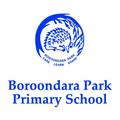Curriculum News

Teaching and Learning at BPPS - Part 1
Professional development and the planning process
At Boroondara Park Primary School, our curriculum is designed using a balanced approach of explicit teaching and inquiry. We do this through the use of an agreed whole school instructional model and planning process. Over the coming weeks I will be sharing with you some of our teaching and learning model, in order to help you better understand how we teach your children.
The development and implementation of a whole school instructional model and a BPPS teaching and learning framework has allowed us to establish a consistent approach to curriculum implementation across the school. It encompasses planning, whole class engagement, explicit teaching, shared skill development, independent learning, assessment and reporting, and enables us to reflect on lessons, sequences and units of work and alter them where needed. By having this in place we are able to identify and share best practice as well as consider and respond to areas of learning need.
Our teachers are regularly involved in ongoing professional learning and discussions that consider how we can develop our practice to meet the wide-ranging learning needs of our students. For example, over the last 4 years professional learning for all staff has built capacity in the implementation of reading, writing, speaking and listening with the establishment of common teaching practices. The use of whole school moderation in writing has increased consistency of teacher judgement and supported a celebration of what students can do with a focus on the next teaching points. Learning around formative assessment is supporting staff to adapt formative and summative assessment tools to guide improved planning and learning outcomes, as discussed in previous newsletter on ‘assessment’.
Staff spend considerable time and energy working in Teams planning creative, cohesive and sequential units of work that will meet the learning needs of their students and that reflects current research and an understanding of how children learn. The driving goal during the planning phase is to determine each student’s zone of proximal development (ZPD). ZPD, developed by psychologist Leo Vygotsky, refers to the range of abilities someone can perform with the guidance and support of an expert (teacher, peer, parent, coach), but can't yet do independently. 'Proximal' therefore means those skills that they are 'close to mastering'. By knowing our students ZPD allows us to plan accurately for the next stage of learning. The Planning Phase involves:
· Reviewing data to determine prerequisite skills, knowledge and understanding
· Using the Victorian Curriculum to plan for differentiated learning
· Creating Learning intentions, lessons, success criteria and assessment
Consistency with planning at all levels ensures a developmental program that is aligned within the cycle of the Instructional Model.
Compiled by Shannon Reeve
